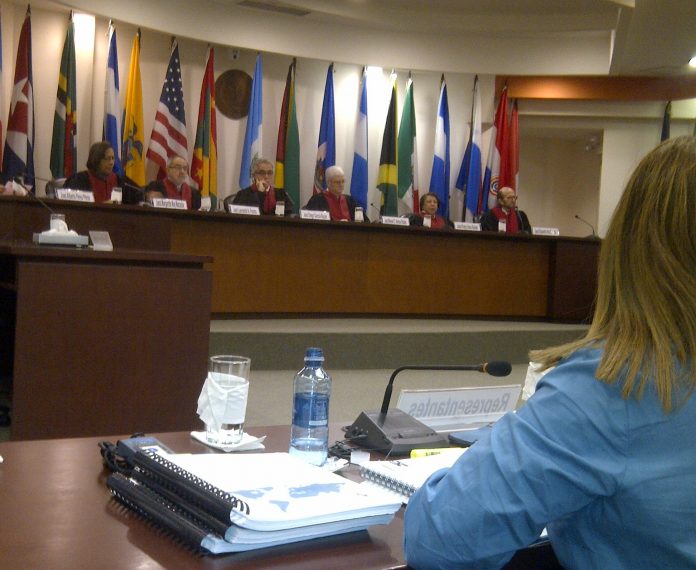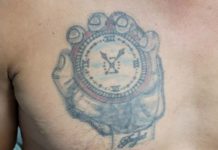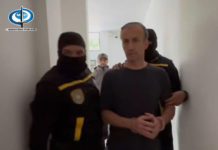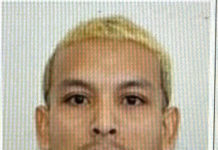
Chávez against the Court
Between 2002 and 2012, the IACHR has received 190 cases on human rights abuses; 62 out of which have been admitted, for a total of 11 sentences that involve Venezuela
A young engineering student and member of the national swimming team called Raúl Díaz Peña, has internationally put the Bolivarian Republic of Venezuela and Venezuela’s President Hugo Chávez in the spotlight by succeeding in having the Inter-American Court pronounce a judgment of conviction on Venezuela for violation of human rights. The sentence speeded up the presidential order to leave the Inter-American Commission on Humans Rights (IACHR).
Díaz Peña, who has been granted political asylum, once faced the Government at the Supreme Court in a legal dispute that lasted seven years and a dispute where the Venezuelan Government was never absent. On the contrary, it made use of its lawyers to make its pleadings; nevertheless, on June 26, 2012, the Bolivarian Republic was condemned by this autonomous judicial court, which ruled: “The Venezuelan State is held internationally responsible for the violation of rights to integrity and for treating Mister Díaz Peña in inhuman and degrading ways.”
Díaz Peña was arrested in 2004 due to his supposed connection with the terrorist attacks against the Consulate General of the Republic of Colombia and the Spanish Embassy Commerce Office and remained confined in the Control of Apprehended Persons (prisoner in El Helicoide jail) until May 2010. In April 2008, he was sentenced to nine years and four months in prison for offences of public intimidation, physical damages and slight injuries. However, in September 2010, while he counted on conditional freedom on weekends; as a response to the ever-lasting threats, he escaped to Miami where he sought political asylum.
While President Chávez celebrated the 189th anniversary of the Venezuelan Navy, at the naval force base located in Carabobo state; he fired back to the sentence pronounced by the international organization by accusing the Court of “supporting terrorism” and offending a country because of its initiative to be free. The Head of State expressed that the Court “has once again rode roughshod on the dignity of all the Venezuelan people; so for us to retain our dignity, we must get out of there.”
It is worth noting that the Inter-American Court is an independent judicial organization of the Organization of American States (OAS), whose task is to enforce and construe the American Convention on Human Rights and related treaties.
It is also worth indicating that only State Members of the OAS and the Inter-American Commission on Human Rights (IACHR) have access to the tribunal based in San José (Costa Rica). The IACHR Court acts as continental Attorney’s Office where citizens may file charges for violations of their human rights committed by authorities from their respective countries; and if the IACHR considers that they are proven, then it can sue designated countries.
Note that the panel of judges who heard Díaz Peña’s case was composed of jurists from Peru, Costa Rica, Argentina, Jamaica, the Dominican Republic, Uruguay and Chile. Briefly, countries that have allied with Venezuela and have benefited from the economic policies introduced by Venezuela’s Head of State. The only dissident from the bunch was Chile’s representative, who objected the aspect referred to Díaz Peña’s defence lawyers. In his regard, they did not exhaust all local remedies before the Venezuelan instances so that Díaz Peña’s requests were considered. The jury’s composition indicates that the sentence passed by the body has little to do with political partialities and neither with the influence that the United States could have had upon it. On the contrary, the sentence was backed up by representatives from “countries friends with Venezuela.”
The ones who take advantage
The Inter-American Court heard the case thanks to the work done by Venezuelan lawyer, based in Miami, Florida, Patricia Andrade, who made use of the NGO that she manages, Venezuela Awareness Foundation. In October 2005, subsequent to finding out the serious health state, due to the poor conditions of the prison and tortures suffered by Raúl Díaz; she contacted Díaz’s relatives, took charge of the case and submitted it to the Inter-American Commission. It took her five years at the IACHR until she could finally present the case in Court on December 22, 2010.
Patricia Andrade thinks that President Chávez’s reaction just proves Venezuelans and the international community that he will keep on violating human rights without international monitoring. He is showing through his attitude that he does not care to provide medical care to political prisoners, that he does not care if they suffer irreversible damages to their health, as it happened to Raúl Díaz; that he does not care if they die because of health issues, that in Venezuela, prisoners will continue to be chased and tortured and that these inhuman and degrading treatments will not be ever punished. Lawyer Andrade warns that in Venezuela, court trials filled with hidden intention, manipulation and uncertainty will continue to exist.
The countries with the largest number of files at the IACHR are Colombia, Peru and Venezuela. The Commission has received from Venezuela, between 2006 and 2012, 190 cases on violation of human rights, 62 out of which were admitted and 11 ended up in sentences passed by the Court.
The process
Lawyer Andrade was asked about the extent of the sentence passed by the Court. She refers that she had made the request to the Inter-American Court in October 2005. By that time, the sentence against Díaz Peña had not been pronounced as it took place in 2008. That explains that the reasons used for the appeal issued before the Court are clearly expressed in the sentence, which indicates that “his detention would have been illegal and arbitrary.” It also revealed that Peña had been on remand which would have exceeded the limits established by the criminal law. That is why one of the aspects shown in the complaint referred to “the right to go to a judge or experienced tribunal so that it decided about the legality of the detention and the judicial independent and impartial protection.”
Andrade maintains that Raúl Díaz’s case counted on no guarantees and did not either count on an impartial judge in all the years he attended the court; and for such reason, the NGO she represents could not afford to wait for those restrictive ever-lasting years to take action in a case that was shady from the very beginning; due to a series of serious procedural defects with an evident intervention from the Executive Power.
Shady investigations
In order to portray the manipulative attitude during the case, Andrade brings about the case of the two witnesses, promoted by the Attorney’s Office, who made accusations against Raúl Díaz after being coerced. One of them, Silvio Mérida Ortiz, retracted his confession afterwards before the very judge, Migdalia Añez, who prosecutes Raúl Díaz. Andrade cannot comprehend how the judge did not even open an investigation, after listening to all the horrible stories of tortures suffered by the witness in order to implicate innocent people. But as it concerned a political case, she pronounced judgment of conviction. Silvio Mérida Ortiz, who was also an accused in that case, was tortured and forced to record a video, where he implicated two of his partners. The video that showed him all beaten and wounded could not even be admitted by the tribunal.
Another witness that implicated them was Vanesa Napolitano, who survived a multiple murder perpetrated against three soldiers of Plaza Altamira (Altamira Square). The survivor was protected by the Government and although she had no relation with the case, she provided her testimony and implicated the three accused ones of planting the explosives.
During the court trial against Díaz Peña, Silvio Mérida and General of Division Felipe Rodríguez alias El Cuervo, no evidence elements were ever issued to prove that these three people were indeed at the correct time and place where these explosives went off, lawyer Claudia Mujica defense lawyer of Rodríguez- refers. She also points out that the public prosecutors had offered to submit some videos that never presented at the end.
Andrade clarifies that the Inter-American Court was not hearing the sentence given to Raúl Díaz; instead, what it centered on was to make sure that Raúl Díaz was not being prosecuted by an impartial judge and tribunal, by a Public Ministry which instead of doing its job, became an instrument for political persecution and dedicated to pursue and violate human rights.
In brief, lawyer Andrade claims that the IACHR embarked on the mission of studying his client’s right not to be illegally imprisoned and getting to know the reasons for his detention. Also, the right to be sued in a reasonable term or be released and the presumption of innocence. But above all, the most important one: his right to physical integrity. Guidelines that were not followed in Díaz Peña’s case.
Other actions in court
Raúl Díaz’s arrest in 2004 took place after the seizure of his car, a Susuki Samurai truck, where, according to the sentence, Díaz had hidden the C4 explosive used in the terrorist attacks against the embassies. Claudia Mujica, defense lawyer of Felipe Rodríguez, remembers that the Susuki Samurai van, legal property of Díaz, had been broken for six months, at the doors of his home, which leaves in evidence that placing the explosives in there was kind of useless. In addition, the van was seized by the Directorate for Intelligence, Security, and Prevention (DISIP) and taken to the main police station where they practiced the expert testimony, with no presence of witnesses or the defense lawyer team, skipping of the whole chain of custody. Note that the results from the expert testimony were not reliable, according to the defense team.
During the investigations conducted by the IACHR, some people were called as witnesses, who asserted that the very officers from the DISIP had admitted before other arrested ones from El Helicoide jail that C4 packs were planted on Díaz.
While analyzing all those elements and pieces of evidence presented during the trial, the Court ruled: “The Government is held responsible for the violation of the right to personal integrity established in article 5.1 and also for the inhuman and degrading ways of treatment which do not comply with the regulations in article 5.2, regarding article 1.1 of the American Convention on Human Rights to the detriment of Mr. Raúl Díaz Peña, in compliance with the terms in paragraphs from 135 to 141 of this ruling.”
twitter: @folivares10
Translated by Adrián Valera Villani











